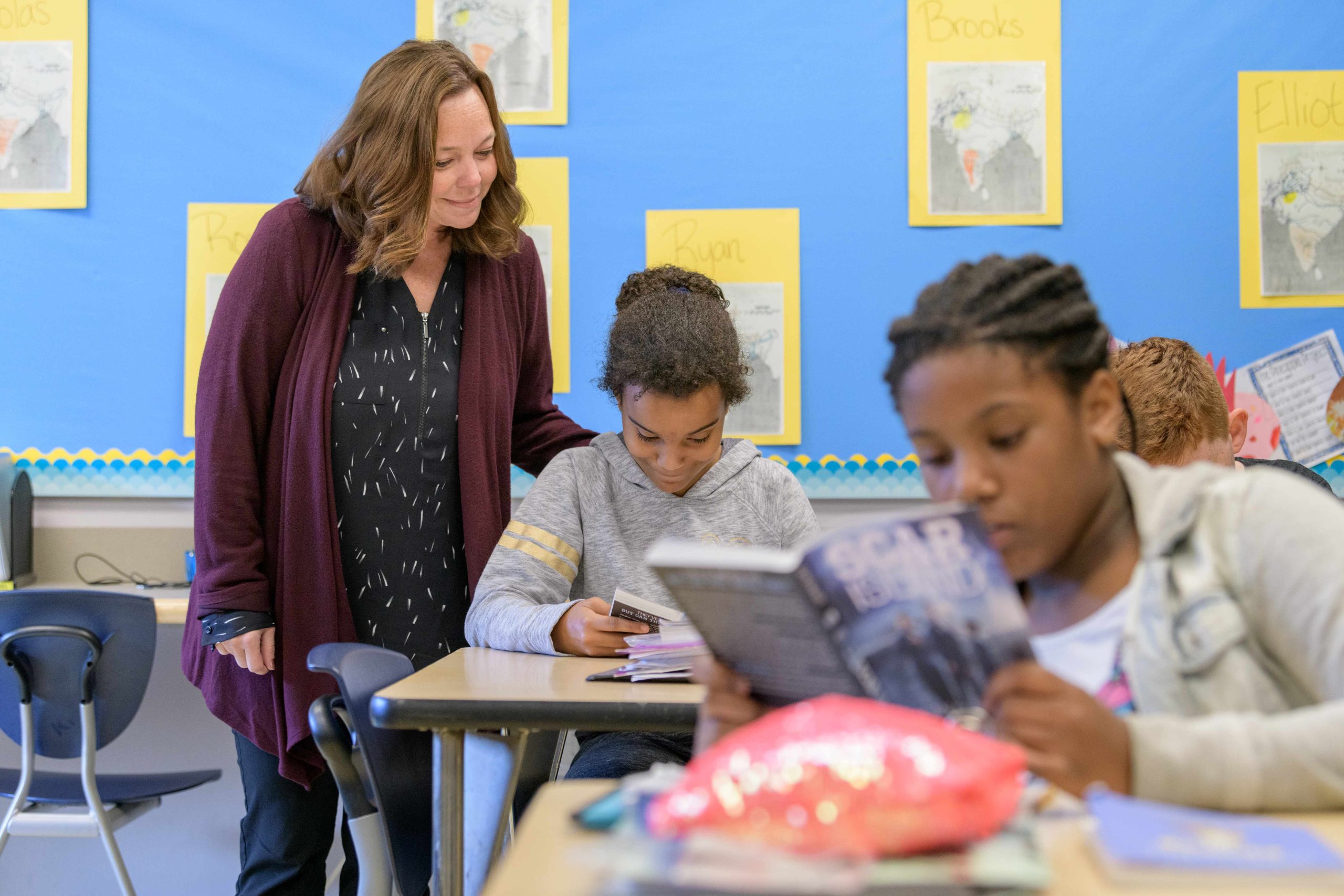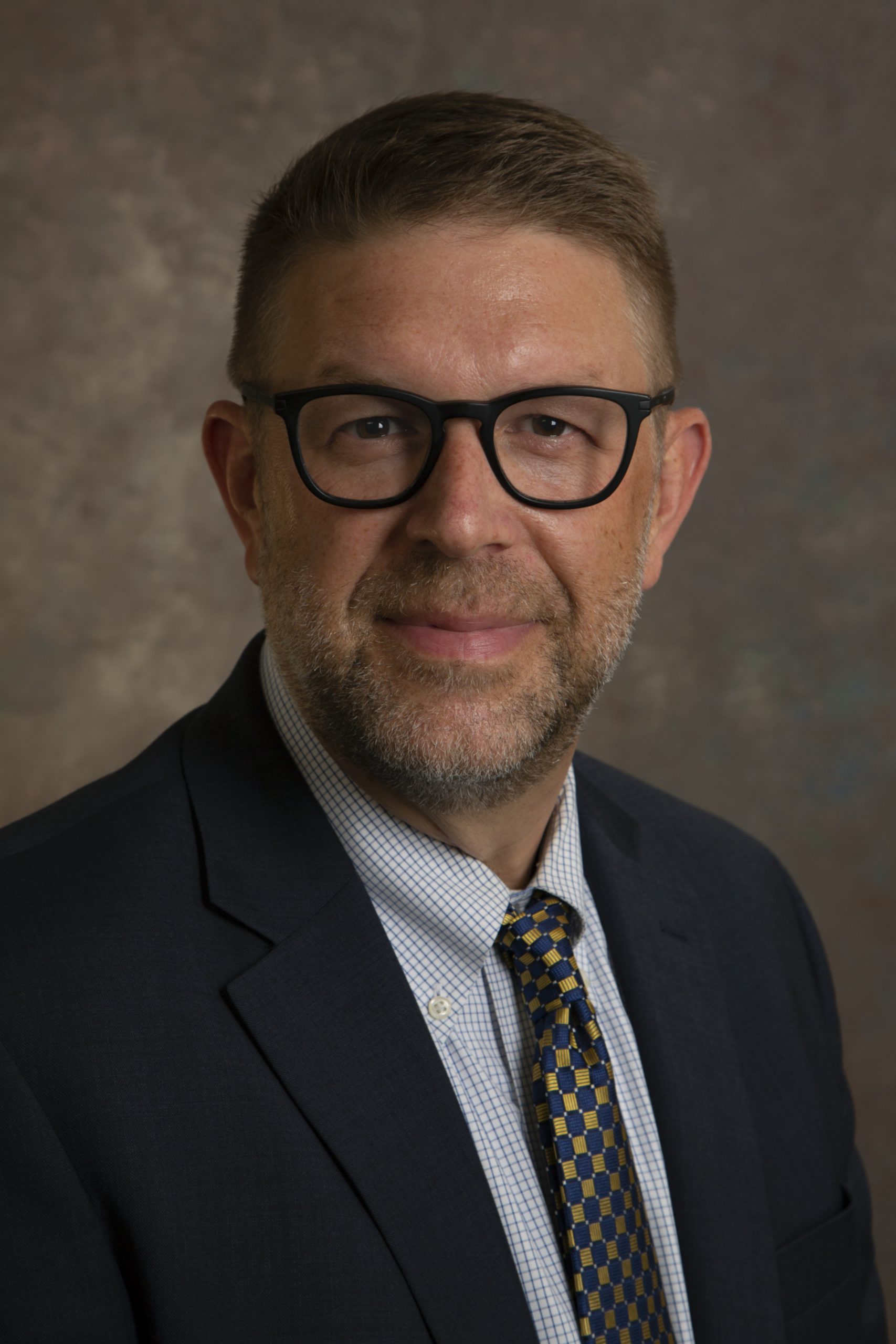Research Spotlight: Steve Amendum

University of Delaware professor finds that professional learning program leads to literacy growth among students and improved teacher collaboration
Multilingual learners (ML), or children whose home language is not English, make up about 15% of all kindergarten and first grade students in U.S. public schools. Yet, many teachers receive little preparation in ML instruction, and many feel unprepared to support their ML’s languages, cultures and immigration experiences. To support these teachers, University of Delaware Professor Steve Amendum and his colleagues developed a new professional learning (PL) program for elementary classroom and English as a Second Language (ESL) teachers, which significantly improved ML students’ language and literacy outcomes.
With a new article in the Journal of Multilingual and Multicultural Development, Leslie Babinski of Duke University, Amendum and their co-authors evaluated the impact of a year-long PL program offered to kindergarten and first-grade teachers across two school districts in the Southeastern U.S. In addition to significantly boosting the literacy growth of more than 100 students on average, the PL also improved collaboration among participating teachers.
“It’s vital that we support teachers of MLs because many teachers across the country receive limited preparation related to instruction for MLs,” said Amendum, director of the College of Education and Human Development’s (CEHD) School of Education. “Teachers tell us they often feel unprepared to effectively support their MLs, and school administrators and teachers have highlighted the need for effective PL opportunities. This is especially important given the state-level and national shortage of teachers certified in teaching ESL.”
Supporting multilingual learner teachers
The PL program included evidence-based instructional practices for literacy, a semi-structured model for teacher collaboration and a strengths-based approach in classroom instruction. For example, teachers learned to use multiple instructional strategies for developing decoding and language comprehension (rather than relying on a single approach), including building background knowledge, making space for oral language practice and facilitating discussion.
Through weekly school team collaboration meetings, ESL teachers and K-1 general education teachers also worked to align both content and instructional strategies. These meetings helped teachers tailor classroom instruction to their ML students’ instructional needs and cultural backgrounds.
The PL program modeled a strengths-based approach that positioned families’ home languages and cultures as assets with the potential to improve learning and engagement. For example, PL teachers listened to a translated panel presentation from Latinx parents from the community, who shared their hopes and dreams for their children, the value they place on education and the importance of the student-teacher relationship.
“The alignment of teachers’ instruction across the ESL and general classroom settings was particularly powerful because teachers were able to collaborate in a way that maximized the effect of the evidenced-based instructional strategies that incorporated students’ assets,” said Amendum, who specializes in literacy.
Impact of the professional learning
Amendum and his colleagues found that the PL program had a significant impact on both the development of the teachers and their ML students. It significantly enhanced classroom teachers’ engagement in intentional collaboration with ESL teachers.
They also found significantly higher literacy growth on a general measure of English literacy achievement, the Measures of Academic Progress Growth Reading K-2 Assessment, for ML students whose teachers participated in the PL program. These students showed an accelerated pattern of growth over time in their overall language and literacy scores across the school year compared with those in classrooms of teachers who did not participate.
This finding stands out because few PL programs show evidence of improving students’ academic performance. Most studies, instead, focus on the impact of PL programs on teacher learning or instructional practices.
“We were thrilled to see the results that supported the efficacy of this program for both teachers and students,” Amendum said. “We are currently working on a version of the program that can be more widely scaled so we can get it out to as many schools and teachers as we can.”
With the support of a new small business innovation and research grant from the Institute of Education Sciences, Babinksi and Amendum are currently working to scale the PL program so that it reaches more teachers and students.
The second week of May marked National Teacher Appreciation Week, but UD celebrates and supports teachers all year long. To learn more about CEHD research in teacher preparation and teacher learning, visit its research webpage. To learn more UD degrees in education or professional development opportunities, visit UD’s education pathways webpage, CEHD’s overview of graduate programs or CEHD’s School Success Center.
Article by Jessica Henderson. Photo by Evan Krape.

About Steve Amendum
Steve Amendum is director and a professor specializing in literacy education in the School of Education. He teaches courses related to literacy research, assessment and instruction at both the undergraduate and graduate levels. His research areas include early reading intervention, literacy development and instruction for multilingual learners and evidence-based classroom instruction, as well as professional development for teachers in each of these areas. His research has been published in Reading Research Quarterly, American Educational Research Journal, The Elementary School Journal and The Journal of Educational Psychology, among others.
This research complements the work of CEHD faculty studying literacy and language, including Christina M. Budde, Martha Buell, David Coker, Stephanie Del Tufo, Ralph P. Ferretti (emeritus), Roberta Michnick Golinkoff, Myae Han, Benjamin James, Rachel Karchmer-Klein, William Lewis, Charles A. MacArthur (emeritus), Henry May, Adrian Pasquarella, Kristen D. Ritchey, Carol Vukelich (emeritus), Sharon Walpole and Joshua Wilson.



